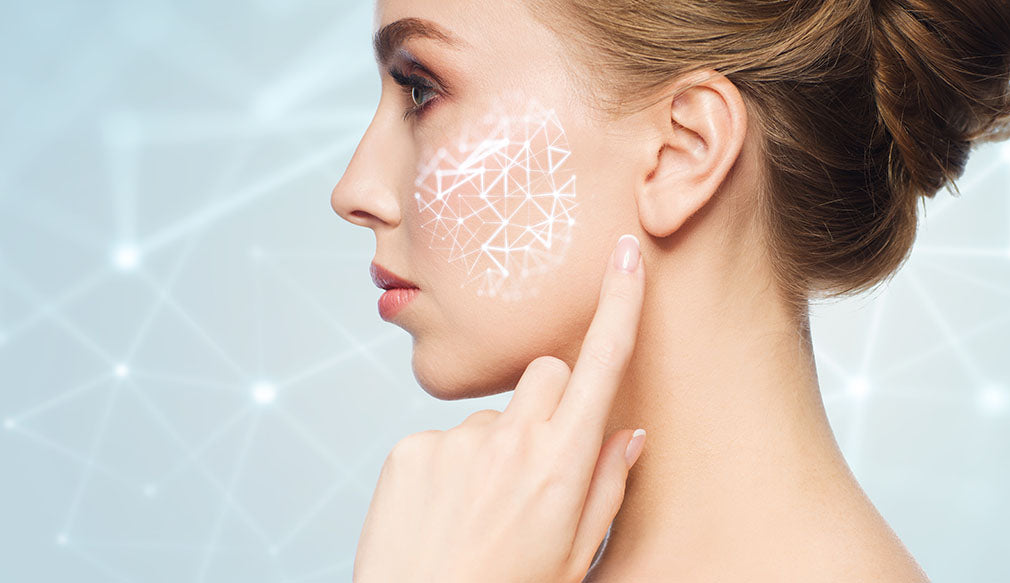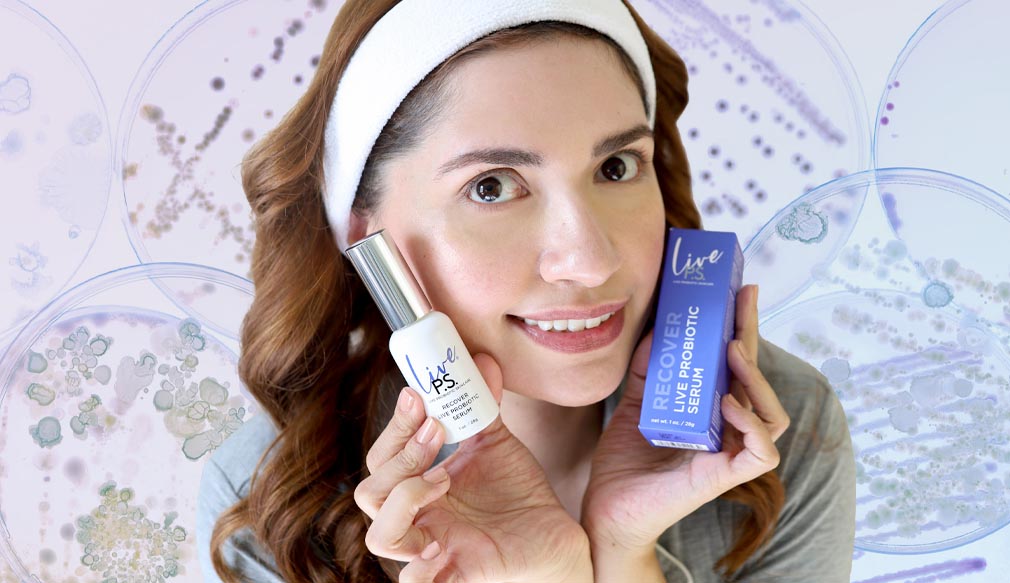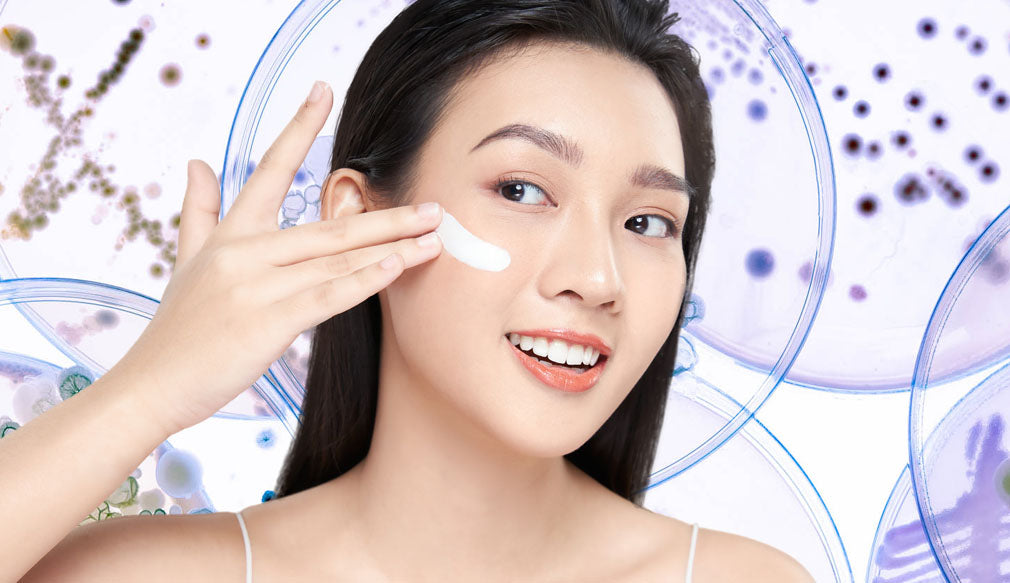
6 Ways Your Skin Microbiome Impacts Skin Sensitivity

6 Ways Your Skin Microbiome Impacts Skin Sensitivity
The skin microbiome plays a significant role in influencing skin sensitivity. The skin microbiome refers to the diverse community of microorganisms, including bacteria, fungi, viruses, and other microorganisms, that inhabit the skin's surface. These microorganisms interact with the skin and with each other, and they can have both positive and negative effects on skin health and sensitivity. Here's how the skin microbiome impacts skin sensitivity:
- Maintaining Barrier Function: One of the key functions of the skin microbiome is to help maintain the skin's barrier function. The skin acts as a protective barrier between the body and the external environment. A healthy microbiome helps strengthen this barrier, preventing irritants, allergens, and pathogens from penetrating the skin. When the microbiome is imbalanced, the skin's barrier function may be compromised, leading to increased sensitivity.
- Regulating Inflammation: The skin microbiome can influence the skin's inflammatory response. Beneficial microorganisms help regulate the immune system's response to potential threats. When the microbiome is disrupted or dominated by harmful microorganisms, it can trigger an inflammatory response in the skin. This inflammation can manifest as redness, itching, burning, or other signs of skin sensitivity.
- Balancing pH Levels: The skin's pH level is another critical factor in skin health. The skin's surface is naturally slightly acidic, with a pH level typically ranging from 4.5 to 5.5. The microbiome can influence and help maintain this acidic environment. When the microbiome is imbalanced, it can lead to changes in the skin's pH, which may contribute to skin sensitivity.
- Producing Metabolites: Microorganisms in the skin microbiome produce various metabolites and substances. Some of these metabolites can have protective effects on the skin. For example, certain bacteria produce antimicrobial peptides that help defend against harmful bacteria. Disruptions in the microbiome can alter the production of these protective substances, affecting skin sensitivity.
- Interactions with Skin Cells: The microorganisms in the skin microbiome can interact with skin cells, influencing their behavior. These interactions can affect processes such as cell turnover, collagen production, and wound healing. Imbalances in the microbiome can disrupt these interactions and impact the skin's overall health and sensitivity.
- Influence on Skin Conditions: Research has shown that imbalances in the skin microbiome are associated with various skin conditions, including acne, eczema, rosacea, and psoriasis, which often involve heightened skin sensitivity. In these conditions, the microbiome may contribute to the inflammation and discomfort experienced by individuals with sensitive skin.
In summary, the skin microbiome is closely linked to skin sensitivity. A balanced and diverse microbiome is crucial for maintaining a healthy skin barrier, regulating inflammation, and preventing irritants from causing sensitivity reactions. When the microbiome is disrupted or imbalanced, it can contribute to skin sensitivity by compromising these protective functions and triggering inflammatory responses. Therefore, promoting a healthy skin microbiome through supplementing with a topical LIVE probiotic is highly beneficial in managing and reducing skin sensitivity.
Suggested Products To Try
Live P.S. Recover Live Probiotic Serum - If you try any Live P.S. skincare products choose this one! This serum helps by adding more of the beneficial bacteria your skin needs to reduce redness, irritation, and inflammation. It also strengthens your skin microbiome to prevent future sensitivity flare-ups by working with the skin microbiome to produce postbiotic metabolites like vitamin A, vitamin C, peptides, antioxidants, ceramides, and more.
Live P.S. 3-Step Kit - This 3-step kit is ideal for those looking to start a simple skincare regimen. It has everything your skin needs to mend and thrive naturally. This kit helps to balance the skin microbiome to reduce current sensitivity symptoms and prevent the intensity and frequency of future flare-ups.
Includes: Live P.S.® Recharge Revitalizing Cleanser, Recover Live Probiotic Serum, and Protect Daily Defense Moisturizer.
- Preps skin for overnight recovery with prebiotics and probiotic extracts while washing away makeup and germs.
- Replenishes skin with topical LIVE probiotics to work with the skin microbiome to help eliminate symptoms like inflammation, redness, and sensitivity while also preventing future flare-ups and producing postbiotic metabolites like vitamins, minerals, and peptides your skin needs to look good every day!
- Nourishes and protects with prebiotics and probiotic extracts while also adding the ideal amount of hydration needed.
A Note About The Process:
When using topical LIVE probiotics like those found in our LIVE probiotic serum your skin may purge. This part of your journey will be unique to you because everyone’s skin microbiome is different. Just know that if you think it is getting worse, it’s part of the skin clarification process, don’t stop! Your healthy, happy skin is right around the corner. NOTE: Purge is not irritation, if you experience a burning sensation discontinue use.
Frequently Asked Questions:
Q: Can an imbalanced skin microbiome lead to skin sensitivity?
A: Yes, an imbalanced microbiome can disrupt the skin's barrier function, trigger inflammation, and alter the skin's pH, all of which can contribute to skin sensitivity.
Q: What are some signs of skin sensitivity caused by a disrupted microbiome?
A: Signs may include redness, itching, burning, or discomfort on the skin's surface.
Q: Are there protective substances produced by the skin microbiome?
A: Yes, some microorganisms in the microbiome produce protective substances like antimicrobial peptides that defend against harmful bacteria.
Q: Can disruptions in the skin microbiome affect skin conditions related to sensitivity?
A: Research has shown that imbalances in the microbiome are associated with various skin conditions, including acne, eczema, rosacea, and psoriasis, which often involve heightened skin sensitivity.
Q: Why is understanding the role of the skin microbiome essential for managing and reducing skin sensitivity?
A: Understanding the skin microbiome's impact on skin sensitivity can guide individuals in adopting skincare routines and lifestyle practices that promote microbiome balance and, consequently, healthier, less sensitive skin.





